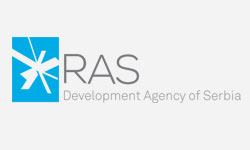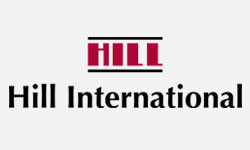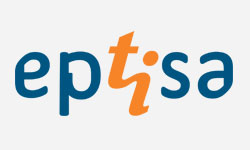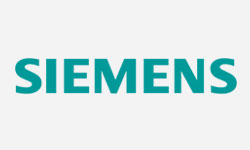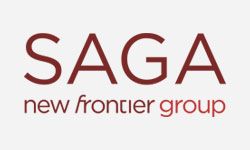Overview
June 13, 2017 – International Cooperation and Development Forum in Serbia: The forum for Upcoming Business Opportunities was held at the Hyatt Regency Hotel in Belgrade, Serbia. This forum was organised by DevelopmentAid and the Development Agency of Serbia (RAS) to enhance relationships between local and international stakeholders, bilateral and multilateral donors and private-sector companies from Serbia and the Balkans.
Organisations, along with their representatives, present at the conference included:
USAID, Office of Democratic and Economic Growth, Laura Pavlovic
Development Agency of Serbia, Ana Zegarac
United Nations in Serbia, Karla Robin Hershey
Global Compact Network Serbia, Sinisa Mitrovic
European Investment Bank in Serbia, Dubravka Negre
European Bank for Reconstruction and Development in Serbia, Daniel Berg
Japan International Cooperation Agency, Hideya Kobayashi
Swiss Agency for Development and Cooperation, Ursula Laubli
USAID Business Enabling Project, Dragana Stanojevic
EPTISA, Dragan Kostadinov
SIEMENS, Marija Novakovic
SAGA, Nebojsa Bjelotomic
The International Cooperation and Development Forum began with a panel discussion on the importance of international cooperation for Serbia and the region’s socio-economic growth and business development.
The panel opened with remarks from Ana Zegarac, Development Agency of Serbia who presented their mandate as well as past and upcoming projects and plans. Ms. Zegarac also addressed the audience for any potential investors interested in the development of the country and relevant business ideas.
Karla Hershey spoke about the UN in Serbia and the Balkans: the SDGs and Agenda 2030. Some of the topics covered were about further promotion of good governance and the rule of law with development of social and human resources, economic development, growth and employment, environmental protection, fight against climate change, building resilient communities, and integrating culture into the overall process of sustainable development.
Daniel Berg then spoke about EBRD’s activity in Serbia, cumulative commitments and the active operations with a goal of promoting a sound investment climate, good corporate governance and stronger institutions.
Dubravka Negre, the head of EIB in the Western Balkans, presented data about the activity and finance provided for expertise in sound and sustainable investment projects for the region. The main priorities of EIB in the Western Balkans and Serbia were stated to be the raise of the standards in quality of national systems and foster integration of Serbia into the EU.
Other important stakeholders from Development Agencies included, Ursula Laubi, the director of the Swiss Cooperation, who focused her presentation on successful approaches for cooperation and transparent, accountable and efficient local governments. The main goal of which is to increase the quality and ensure liberal access to municipal services along with strengthened public finance management and create a coherent decentralization and social inclusion reform.
Hideya Kobayashi, the head of JICA Balcan Office reported the types of assistance JICA is providing to the region in the form of ODA loans and regional initiatives. JICA supports economic revitalization through promotion of tourism and SMEs.
USAID was presented by Dragana Stanojevic, and presented USAID’s Business Enabling Project, which has been launched on January 2011. The aim of the project is to help the Government of Serbia (GoS) increase the competitiveness of the Serbian economy and its private sector by streamlining the business enabling environment, improving public financial management, strengthening financial markets, and improving access to finance for micro, small and medium-sized enterprises (MSMEs).
The regional representatives Dragan Kostadinos from EPTISA and Ms. Marija Novacovic from Siemens spoke about current situations related to ongoing contracts, as well as future projects, aimed at attracting the involvement of local companies and domestic suppliers. These contracts also facilitate the development of small and medium enterprises and growth of the entire national economy, while increasing their organisation’s importance in the local market.
Svetlana Dimitrioglo, Senior Development Manager for DevelopmentAid, presented information on direct investments and remittances the state of ODA received by Serbia based on the thorough analysis of official publications from international organisations (such as the OECD, the UN, the Ru, etc.) published during the period of 2010-2015. Report can be downloaded here.
Mariana Soltan, the Senior Development Manager for DevelopmentAid connected the audience to the world of business opportunities through live demonstration of how private-sector firms can access comprehensive business intelligence through www.developmentaid.org
The chief executive of SAGA, Mr. Nebojsa Bjelotomic presented about the practical experience of cooperating with DevelopmentAid, in terms procurement information accessibility, which facilitated SAGA’s participation in local projects.
After the presentation, representatives of private sector organisations from Serbia, Hungary, Austria, Greece, Turkey, Poland, Romania, Switzerland, benefited from a facilitated dialogue with donor agencies to get a better understanding of the projected forecasts for the Balkans and to collaborate on implementation strategies for future projects.
Report Download report

The Republic of Serbia, a landlocked parliamentary democracy in the central Balkans, has a population of approximately 8.8 million. Serbia is an upper middle income country with a GDP estimated at $37.7 bn or $5.376 per capita in 2016 (IMF, 2017). The country has officially applied for European Union membership in 2009 and received the full candidate status in 2012. The EU is Serbia’s main trading partner, accounting for 66.1% of Serbian exports and 63.1% of imports to Serbia in 2016 (Statistical Office the Republic of Serbia, 2017). The labour market and the social situation are challenging.
The unemployment rate was at a record high of 24% in 2012 and it decreased to 19.7% at the end of 2016. Nearly 9.6% of Serbian people are estimated to be living in poverty (UNDP Serbia, 2017). International Financial Institutions and donors have provided major loans and grants for projects in transport, environment, energy and competitiveness sectors.
Download full report on the state of ODA received by Serbia during the period 2010–2015, information on donor’s activity of the top four donor states and the top three multilateral donor organisations. This report also contains information on direct investments and remittances.
Partners/Sponsors
